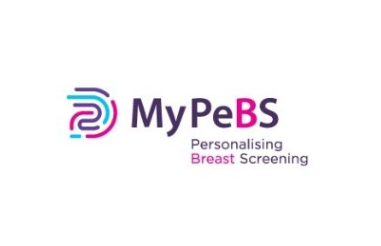
ENDED study
MyPeBS (My Personal Breast Screening) is an international, randomised, open-label, multicentre study evaluating the effectiveness of a breast cancer screening strategy based on each woman's individual risk compared to current national screening strategies. It involves 6 countries and is one of the largest in the world.
The women will undergo a differential screening strategy over a 4-year period and then take a mammogram at the end of the study, after which they will be reincorporated into routine screening programmes. The primary endpoint of the study will be measured at the end of the four-year intervention.
In addition, follow-up data will be collected for 15 years from the start of the study to assess long-term cumulative breast cancer incidence and breast cancer-specific survival.
Study participants will be asked to complete a questionnaire and will then be randomly assigned (by a computer) into one of two groups:
Standard group: The participants will receive the breast cancer screening strategy in line with national guidelines: one mammogram every 2 years between the ages of 50 and 69 years.
Risk-based group: The participants will undergo an early detection strategy according to a personalised schedule based on their estimated 5-year risk of developing breast cancer: one mammogram every 1-4 years according to risk, with or without ultrasound depending on breast density. Risk is calculated by collecting personal data from the woman and taking a saliva sample to obtain genetic information

Inclusion criteria:
Women (whether born as women or not)
Aged 40-70 (inclusive)
Willing and able to comply with scheduled visits, laboratory tests and other trial procedures.
Able to provide written informed consent obtained prior to performing any protocol-related procedures.
Sufficient understanding of any of the languages used in the study.
Exclusion criteria:
Personal history of breast cancer, either invasive or ductal carcinoma in situ (DCIS).
Previous history of atypical breast lesion, lobular carcinoma in situ or chest wall irradiation.
Known or suspected very high-risk predisposition to breast cancer: germline mutation of BRCA1/2, PALB2, TP53 or equivalent.
History of bilateral mastectomy.
Recent abnormal finding in the breast in the framework of a study (clinically suspicious lesion or BI-RADS 4 or 5 image).
Psychiatric or other disorders that are not compatible with protocol compliance and follow-up.
Women who do not intend to undergo follow-up for 4 years.
Dr. Aiguader, 88, 08003 Barcelona
See location on Google Maps
Phone: 93 316 04 00 · Fax: 93 316 04 10
info(ELIMINAR)@researchmar.net